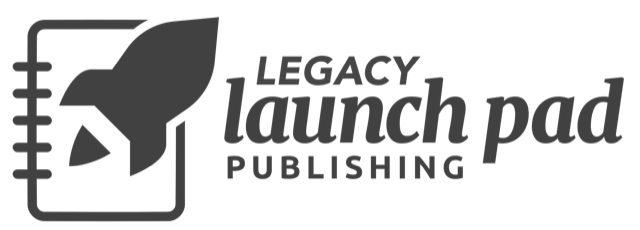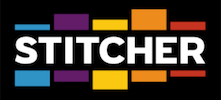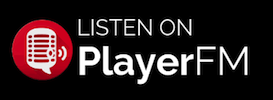
The Secret to Launching Your Authority Building Book
This week, I usher a new baby into the world...
My book, On Good Authority: 7 Steps to Prepare, Promote and Profit From a How-to Book That Makes You the Go-to Expert, is now out and this week's episode is an excerpt from the audiobook.
It's the book's introduction, which is all about how we're in the Golden Age of authority building from a book and how you can take advantage of that.
Only listen if you want to build authority with your book.
TRANSCRIPT:
When I published a humorous novel about addiction and recovery in 2007, I had no idea it was going to make people think of me as an authority.
I was five years sober and had wanted to write a book that could show people how fun and funny recovery could be—to make struggling addicts see that recovery wasn’t the end of life but the beginning.
I put a threesome in the opening scene because, hey, I wanted to attract readers.
The authority building happened accidentally, when a Today show producer heard about the book and asked me to come on the show to talk about a celebrity who had gone to rehab. When I was leaving, he asked me to come back a few days later for another story. Then CNN called. Then Fox News. Pretty soon, I was on TV regularly, with the label “addiction expert” below my name.
At first, this made me panic. “I need to go back to school, get a master’s, do something to deserve to be called an authority!” I wailed to my TV agent. “My only addiction expertise was in chopping up lines of cocaine and ingesting them into my nose!”
I’ll never forget his response.
“You don’t need a degree,” he said. “You have a book.”
And I realized he was right. No one cared where—or that—I’d gone to college. But everyone cared that I had a book. Even if it opened with a threesome.
Every year since then, the path to gaining authority through a book has become even better paved. And yet most people who release books these days find that their businesses don’t improve, and their lives don’t change at all.
If you’ve published a book and experienced that, good news: it never has to happen again.
The reason most authors fail is that what we read about publishing is woefully irrelevant since we only hear about the successful authors. And we think, despite knowing that our chances of fame and riches are small, that we’ll be the exception—the Glennon Doyle, the James Clear. And it makes sense in a way. Who would do something as audacious as write a book and plan to NOT be successful at it?
(Losers, that’s who. And we’re not losers!)
But there’s a reason we’re not successful in the conventional sense—that is, by selling millions of copies and becoming famous. We’ve been playing by rules set up to make us fail.
What I’m showing you how to do will save you from that. It will teach you the secret to making your book wildly successful in a way that impacts your entire career—all without you having to be chosen by a major publisher, an inexplicably popular teenager on TikTok, Reese Witherspoon or fate (though if you are chosen by Reese Witherspoon, will you please let her know that Legally Blonde is still one of my favorite movies of all time?).
Still, let’s get clear about what I mean by “wildly successful." I know authors whose books were wildly successful in the traditional sense—released by major publishers, on The New York Times list, featured on Oprah, made into movies—and those authors are now struggling to make a living since those “wildly successful” books weren’t designed to support their careers over the long haul.
Book success, to me, is about not needing any of the bright, shiny, external, one-in-a-million things to happen and instead having something that attracts clients to you for the rest of your life.
Why has no one told you this before now?
It’s not because people have been trying to keep the secret from you; it’s because most of them don’t know it. It took me six books and 12 years before I understood the situation. And once I did, I realized it’s actually not that complicated if you break it down.
Hence, my 7-step system.
The key element for you to remember with this system is that it’s not about your book. Yes, the book is crucial—without a book, none of this works—but it’s the combination of the book and the authority building my system walks you through that’s so effective.
This is perhaps best summarized by author and entrepreneur Nicolas Cole, who’s a bit of a legend in the online writing space (more about him in chapter two). “It wasn’t until I actually put my first book out that I realized the way I had built myself ended up being more valuable than the book itself,” he says. “That’s what’s opened up so many doors for me.”
The process Cole and I follow is simple but not easy: it’s about first having the right book topic and then consistently working to build your authority before, during and after its launch.
That’s right; it means regularly taking action, whether that’s attending events along with your ideal clients, scheduling posts on social media, gathering subscribers, writing newsletters, supporting leaders in your field, contacting people who can bulk-order your book, reaching out to podcasters, appearing on podcasts, connecting with journalists, finding people who can hire you to speak, handing out copies of your book to strangers on planes or any of the other methods I’ll get into in this book.
If that sounds like a lot of work, remember that sometimes —maybe even a lot of times—this is fun. I happen to love going to events, speaking and writing newsletters. I know other people who love going on podcasts and posting on social media. Also, you can get a team or even a virtual assistant to help you with a lot of this.
Studies show that it takes 30 days to build a new habit and with every event, every post, every email and every call, you’re building that muscle. And, as any cross-fit enthusiast can surely attest, building muscle only makes you want to go to the gym more often.
But also know that I’m here to support you at every step. In fact, I created a calendar for you to download so you—or someone on your team—can track what you do. You can grab it (and other book bonuses) at www.ongoodgifts.com. If you start slacking, that’s okay. Just jump back into it as soon as you can. Eventually, it will become part of what you do.
Still, this isn’t about willy-nilly promo. This is about identifying the book topic that will build your authority and then training an audience to always think of you as that topic’s authority.
If you’re not interested in that, or if you still think you want to try to sell your book to a traditional publisher so you can get rich from your book sales, this book isn’t for you.
Otherwise, we’re in great shape. The information in here will show you how to conceive and publish a book that gives you the authority you need to grow a career around your passion for the rest of your life.
***
I’ve been in the publishing world since the mid-90s, and I believe we’re now living in the Golden Age since the gate-keepers have left the building. It’s like showing up at Studio 54 in 1979, seeing Bianca Jagger ride in on a horse being led by Andy Warhol and walking right past the velvet rope.
We don’t need agents or publishers or people to tell us we’re good enough. We can declare ourselves good enough—even excellent—and either write and publish ourselves or hire professionals to help us. And if we do it right, and do the work to support it, our books can make us into authorities.
While this book focuses a bit on the sort of businesses a book can help, and how to sell your services from your book, the emphasis is primarily on how to create a book that will make you an authority in your field—and then how to keep building your authority from there.
The great news about the process I’m going to describe is that it means becoming a part of the public discussion about your topic and therefore always getting clearer about what your reader wants. You’re seeing what they respond to and what they ignore. You’re discovering their interests and blind spots.
The problem with so-called authority today is that many of the people out there sharing their experience and wisdom are those with neither experience nor wisdom. How could they have either when their lives are devoted to creating TikTok, YouTube and Instagram videos?
Those who have been in the trenches developing actual experience and wisdom, on the other hand, are often too busy, well, gaining their authority to spend time showing the world all that they know.
A book is the e-ticket to the front of the authority line. It’s also one of the last credibility enhancers we have left. Where else in this world do we have an opportunity to spend hundreds of pages walking people through all that we’ve experienced and all that we know?
Even before the time of the seven-second attention span, how-to books were the sort of currency that bestowed immediate legitimacy on the author. Robert Kiyosaki went from struggling entrepreneur to expert in real estate investment when he released Rich Dad Poor Dad in 1997.
Tim Ferriss went from behind-the-scenes entrepreneur to someone who would probably pass the “Does my mom know who he is” level of fame after releasing The 4 Hour Workweek in 2007. Despite the fact that he appears to work at least 400 hours a week, the book made him into an expert on spending four hours doing anything (including cooking and working out).
I often encourage even those CEOs and founders who have no desire for the spotlight to put their business stories down on paper. Ferriss-like fame doesn’t need to be the goal. The fact is, there’s no better way to gain perspective on your life than to write it down (or have someone else write it down). This is especially true for the go-go-go business owner, who often moves so fast that slowing down to take pause and give himself a back pat becomes a low priority.
If you’re writing a book in order to attract clients, people will want to hire you after reading your book. Still, it shouldn’t be a 100- to 200-page ad for your services. In order for your book to be successful—not to mention deeply meaningful for you—it has to be so detailed and transparent that a reader could finish reading it and do whatever it is you’re describing. But the book also has to display your knowledge so impressively that a reader looking to hire someone with your expertise would only want to hire you.
That’s why you need to get very clear both about what problem you’re solving and what you want your readers to do when they finish your book. Do you want them to hire your company? Employ you as a consultant? Take your course or sign up for your coaching program? Pay you to speak? Ask you out on a date? (If it’s the last one, there are easier ways to make that happen.) Whatever it is, figure it out before—or as—you write.
I wrote and published six books without realizing this, concluding that there was no point in writing any more books since they left me broke and with no options beyond ghost- writing books for other people. It was only when a sports agent named Darren Prince reached out to me that I wised up. He wanted to get involved in the addiction and recovery advocacy space, and he saw that I’d written a New York Times bestseller about addiction.
He asked me if I’d be open to writing his book.
It was around the same time I’d received an email from a writer I knew asking if I could give her writing work. So I asked Darren if I could hire her to write the book.
He told me that as long as I edited it, that was fine.
So, she wrote the book, and I edited it. When I presented it back to Darren, he explained that he next wanted it published. So I learned about layouts and cover designs, ISBNs and uploading—all the things publishers had done for me up to that point.
We launched Darren’s book and honestly, I was shocked when he landed a six-figure spokesperson deal almost immediately after the book came out.
I was surprised again a few months later when he got his first paid speaking gig. I stopped being surprised once he got himself on some of the biggest TV shows and podcasts in order to promote his book and firmly established himself as a recovery advocate and expert.
But what astounded me even more was that the book made his sports agency even more successful. Once people knew his personal story, he told me, business negotiations started to feel like conversations with friends, which only resulted in more and better deals.
To be clear, Darren is a hustler bar none. When the book came out, he called in favors, worked the phone and always carried his book with him.
After Darren’s success, other entrepreneurs came to me, and the more they did, the more I saw their books transform them into authorities. As I built a team and grew the business —we’ve now published over 50 books, several of which have become Wall Street Journal and USA Today bestsellers—our clients’ accomplishments also grew. It’s become standard for me to see clients featured on shows like Today and The Doctors and be quoted in The New York Times.
I’m embarrassed to say that it wasn’t until I’d had my company for a year or two that I truly understood how crucial books are for CEOs and other entrepreneurs. I finally woke up to the fact that there was a reason the most respected entrepreneurs out there—from Tim Ferriss to Robert Kiyosaki to Marie Forleo—had books.
I realized then that any business owner who wanted to build trust so they could magnify the success of their business shouldn’t just consider publishing a book but actually needed to publish a book. I also realized that if the person’s goal was to transform their business and life, their book couldn’t be one of those 100-page ones that exist just so the person could call him or herself an author. It had to be exquisite. It had to be their legacy, something they’d be proud to stand behind for the rest of their life.
Understanding that changed everything for me.
***
Publishing your own book can, of course, mean many things. It can mean writing every word yourself and publishing it under your name. It can mean hiring a ghostwriter but handling the publishing on your own. It can mean working with a hybrid publisher that takes a percentage of your sales or hiring a custom publisher that gives you all the profits. It can mean a gorgeous layout and cover that’s indistinguishable from a traditionally published New York Times bestselling book.
It really depends on your goal and how you want to spend your time.
If you’re an entrepreneur running a profitable business and you want a book to help you grow your expertise, I always advise people to look at it like this: how much, roughly, do you make an hour?
If it’s, say, $300, calculate that by how long you think it would take you to write and publish a book. (The rough estimate I’ve heard is that it takes a first-time author roughly 300 hours.)
If you’re doing the math, you’ve spent $90,000 and haven’t even gotten into the editing or publishing yet.
But if the lifetime value of a client is, say, $25,000, you only need to attract four clients from the book and you’ve earned that back.
(As a non-math person, those calculations took me way longer than they should have, so I do hope you’ll take them in.)
Of course, just because you published your book doesn’t mean people will immediately flock to you. But if you already have a business, it can have an immediate impact on that business.
Within a month of launching my book Make Your Mess Your Memoir, my company brought in hundreds of thousands of dollars in terms of new clients. And a consultant I know who advises people on how to sell to the government told me that a few months after his book release, he’d brought in half a million dollars in new contracts. “I can’t say for sure it’s the book that did it,” he said, “but I do know that every new client had read the book.”
Entrepreneur and New York Times bestselling author JJ Virgin put it like this when I interviewed her for Entrepreneur magazine: “If people read my books, they’ll buy my products. We have a relationship. They just took you into their bedroom or bathroom. They feel like they know you.”
Of course, to help them get to know you in a way that makes them want to hire you requires a very specific type of book—and presence.
What’s in this book isn’t just based on my own experiences and those of my clients. It’s also culled from hundreds of interviews I’ve done with other New York Times bestselling authors and top entrepreneurs on my podcast.
There’s nothing in this book about how to outline, write or publish your book. There’s enough out there on those topics.
Instead, this book breaks down exactly what you should do before and after your book is written and published if you want to be considered an authority.
Its specific focus is on the three parts that make up my 7- step process:
Preparing (which you should do before and while your book is being written)
Promoting (which you should be thinking about and doing while your book is being written so you’re set up for success once you’re launching)
Profiting (which happens after publication)
Broken down further, it is:
Prepare (Conceive/Nurture)
Promote (Show Your Face/Share Your Voice/Get Creative)
Profit (Get On Stages/Get Clients)
If you’re the visual type who’s into cute icons, here’s what it looks like:

There’s just one deal we have to make: you need to do something to build your authority every day. Maybe it’s working on your book or the business your book will support. Maybe it’s sending out a newsletter. Maybe it’s posting on social media. It doesn’t matter what it is; just do something. If you’re thinking, “Easy for you to say, but you don’t know how busy I am,” I challenge you to find a way to embrace this process—both the writing and the authority building—until it becomes a habit. I promise you it will be worth it.
I’ve created a calendar that can help you (you can access it by going to www.ongoodgifts.com) but there’s something else I want you to do that will really hammer the habit home. When you finish reading this book (after reviewing it on Amazon, of course), email 10 people you know to tell them you’re going to be writing a book that can support your business (or soon-to-be business), and building your authority around it; see if they want to join you in the process or just let you check in with them as you make progress. You can find sample copy for those emails on www.ongoodgifts.com.
Here’s why I’m pushing you so hard to do this: if you have a business your how-to book supports, and you plan and promote that book following the system I’m giving you, you’ll be amazed by how many opportunities it will bring in. And it doesn’t even matter how many (or few) copies you sell! As multiple New York Times bestselling author Robert Greene told me, “Your book could have sold 11 copies over the course of 10 years, but you can show it to people, and they’re impressed.”
Echoes Chris Voss, “Even if the only people that actually pay for copies are your parents, there’s no better marketing tool or calling card than a book. It becomes the most viable busi- ness card you’ve ever had.”
Still, it’s even better if the right people read it—people who can become your clients, hire you to speak, buy your products or work with you in some other way. I’d rather have 100 readers who are going to be impacted by this book—and possibly reach out to me for help in their own authority-building book creation—than 10,000 people who won’t really absorb the information at all.
Many people try to launch books that change their lives and very few are successful. But with the help of Greene, Voss and the others, I’m going to show you how to become one of them.
















